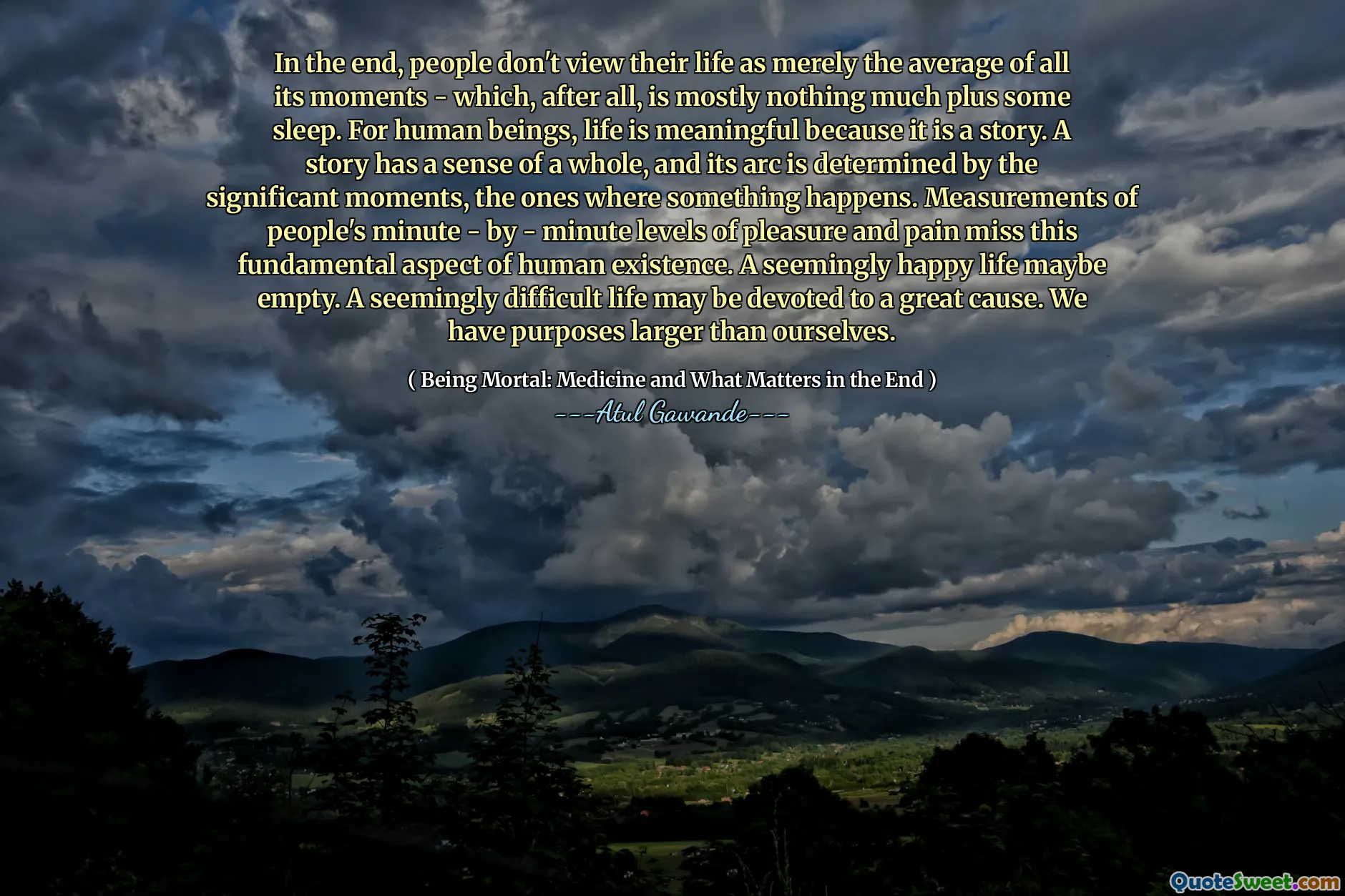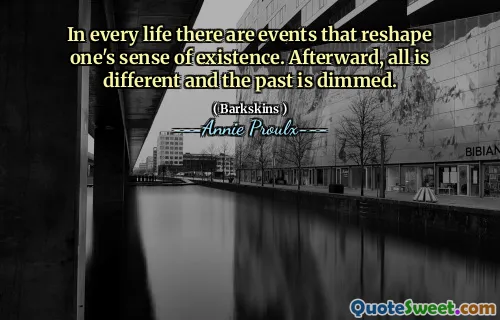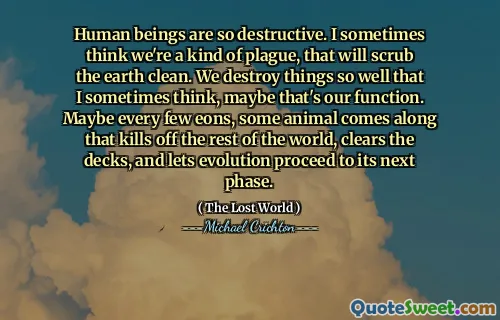
In the end, people don't view their life as merely the average of all its moments - which, after all, is mostly nothing much plus some sleep. For human beings, life is meaningful because it is a story. A story has a sense of a whole, and its arc is determined by the significant moments, the ones where something happens. Measurements of people's minute - by - minute levels of pleasure and pain miss this fundamental aspect of human existence. A seemingly happy life maybe empty. A seemingly difficult life may be devoted to a great cause. We have purposes larger than ourselves.
This quote from Atul Gawande's Being Mortal captures a profound truth about human existence: that we do not live life as a simple accumulation of uninterrupted pleasures or discomforts, but rather as a narrative shaped by meaningful moments. It challenges the classical hedonic view that life's quality can be measured simply by tallying moment-to-moment pleasures and pains. Instead, it emphasizes that life gains meaning through its narrative arc — the sequence of significant episodes that make up a story. This perspective compels us to reconsider what it truly means for life to be satisfying or valuable.
What really strikes me about this passage is its recognition that the human experience transcends the immediate and observable. Moments of great suffering or challenge, which might be considered ‘difficult’ or ‘painful’ in a narrow sensory sense, can actually be the stuff of meaning and dedication, contributing to a sense of purpose larger than oneself. Conversely, a life filled with transient pleasures or momentary satisfaction might end up feeling hollow if it lacks that overarching, purposeful story.
This insight feels especially relevant in contemporary society, where happiness is often reduced to fleeting moods or external accomplishments. The quote invites us to adopt a long-view mindset, focusing on the meaning woven through our experiences rather than on immediate gratification. It also encourages empathy, reminding us that judging others' lives by surface-level happiness misses the deeper narratives underway.
Ultimately, the quote serves as a reminder that life's essence lies in the meaningful journey, in the pursuit and realization of causes that transcend individual comfort. It supports the idea that purpose and story matter as much as, if not more than, pleasure statistics when it comes to defining a well-lived life.


